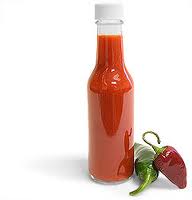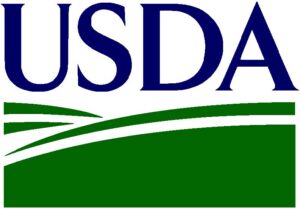 My friend Grace and I were having lunch when a group of people took the table next to us. It became clear after a couple minutes that they were coworkers in a travel business. They were discussing an upcoming public relations event but the topic isn’t important. What was noticeable was the passion and enthusiasm they had for the topic. Ideas were flowing fast, everyone contributing.
My friend Grace and I were having lunch when a group of people took the table next to us. It became clear after a couple minutes that they were coworkers in a travel business. They were discussing an upcoming public relations event but the topic isn’t important. What was noticeable was the passion and enthusiasm they had for the topic. Ideas were flowing fast, everyone contributing.
Grace, who owns a beautiful little bakery, leaned close and said, “I love being my own boss but sometimes I miss hanging out with a group and just kicking around ideas like that”. What Grace was asking for is not that unusual among small business owners, Self-employment provides freedom and opportunity but can also be a little isolating. While most small business owners like being in charge, many could also benefit from an opportunity to gain a broader perspective. This is especially true if the business does not have many (or any!) employees. Enter the Dream Team!
A dream team is an idea that every business owner ought to consider. Putting together a winning team requires a little reflection and some groundwork but it can be very rewarding. Ideally, your team will come together to help you identify solutions to a specific problem or issue.Answering a few questions can help you identify the right people to invite.
- What do you expect from a team? Before you start inviting people to be your advisers take time to assess what kind of advice you really want. Do you want to improve your profitability? Expand your markets? Diversify your product line? Are your concerns related to your business image? Employees? Your online presence? Narrowing your focus and setting some goals for your business will help you identify the type of information you need and that will lead you to the people you want at the table.
- Where are your strengths? All of us have skills and talents. What you want in your dream team is not a duplication of what you already have but skills and abilities that will compliment what you have. If you are a creative marketer but lack passion for the financial management then look for someone who will bring some financial expertise to the discussion.
- What are you prepared to offer in return? This is not intended to be about money. People tend to do things that make them feel good so before you ask someone to participate in your “dream team” you might want to prepare a few thoughts on what you might be willing to provide in return. It could be a meal, it could be lending your skills to help out with an event, it could simply be a willingness to ‘pay the gift forward’ by helping other business owners down the road.
- Are you willing to make some changes? One of the biggest disappointments for anyone asked for advice is to realize that the person who asked has no intention of making any changes. Before you convene your management team be clear with yourself about your willingness to listen and consider new options.
- What kind of commitment are you asking for? Is this a one-time get together or would you like the group to meet for an extended period of time? The more clear you can be regarding your expectations the easier it will be for people to understand what they are agreeing to. That said, don’t be put off if someone says they can only commit to the first meeting — if they enjoy it they may well sign on for a second, and third, meeting.
- Who should you invite? This may depend somewhat on the answers to the previous questions. In some cases it might make sense to ask people with some specializedknowledge – bookkeeper, web designer, insurance agent, veterinarian, or an attorney. You might be surprised at people’s willingness to help you out especially if they are individuals you already have a relationship with. Of course you should be respectful of the time commitment you ask from these professionals and be prepared to pay for any actual services provided that might result from a management team meeting. Don’t underestimate the value of inviting other business owners, customers and leaders in the community. Good ideas can come from anywhere!
- Are you willing to share sensitive information? In order for a group to be really helpful to you, you should be prepared to be transparent about your business. If you are uncomfortable sharing financial information or customer demographics or operational details then this might not be a good choice for you. The most successful management teams are those where trust is high and confidential information can be shared honestly without any fear of judgement or concern that the information will be shared outside the group.
 Once you have decided to move forward you might choose to start small. Invite two or three individuals that you trust and who are familiar with your business and get together over coffee to chat about the idea. Share what you are hoping to accomplish and why you selected them. Take it slow, trust your intuition and be prepared to listen.
Once you have decided to move forward you might choose to start small. Invite two or three individuals that you trust and who are familiar with your business and get together over coffee to chat about the idea. Share what you are hoping to accomplish and why you selected them. Take it slow, trust your intuition and be prepared to listen.
A cynic will tell you that free advice is worth what you pay for it but many small business owners are learning that a few hours spent with a dream team is all they need to take their business to the next level. Give it a try…you never know where the experience might take you!
Not quite ready for a dream team?
If you are still in the planning stages of a new business you may not be ready for a dream team. There are still plenty of questions that you should be exploring. The following assessments might help you frame your business goals. Have older children, your spouse, potential business partner or a good friend complete these with you — the conversations that result will help you clarify your values and goals as they relate to your business.












